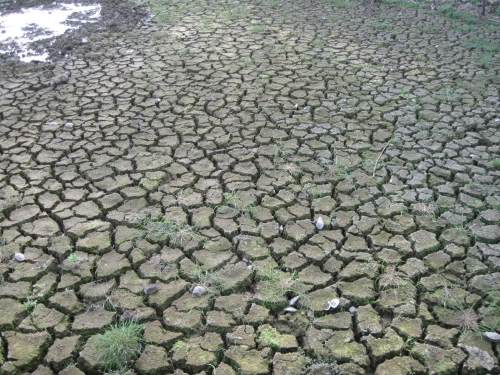There was an idea in the 1960s that we were entering an enlightened Age of Aquarius. They were only 50 percent correct. Although we wouldn’t reach enlightenment, we have indeed entered the era of water.
Water will be the single most important resource in the coming century. Already in 1995 the VP of the World Bank said that the wars of the 21st century would not be over oil, but over water. There is a name for this: water wars.
One of the unexpected effects of global warming has been a diminishing supply of fresh water, as many parts of the world have been experiencing droughts. There are already a large number of flashpoints around the world where water wars are in the process of breaking out.
Israel and Syria will likely enter a dispute over access to fresh water. Egypt will likely enter a conflict with Ethiopia over access to the Nile. India and Pakistan are already in conflict over Kashmir.
Of all the nations in the world, it is expected that Yemen will soon not have enough water for its growing population in an already arid landmass. By 2030, it is estimated that fully half the world’s population will not have access to drinking water. The Middle East—an already volatile area of the world—is set to run out of water in the next decade, which sets the stage for massive conflict.
What Can Be Done?
Several countries are already preparing for the coming shortages in potable water. By all estimates, water will become the most sought after commodity in the world, poising Canada to be the Saudi Arabia of the new century. Instead of oil, their main export will be their vast clean water stores.
Australia is expected to be hit hard in coming years. They are among the trailblazers in using a vapor compression system for purifying the saltwater that surrounds their continent. Desalination is one of the emerging technologies that will dominate the near future. It is currently prohibitively expensive for most countries to implement. Indeed, although Israel develops the technology and sells it to Australia, it lacks the funds to set itself up to desalinate water from its Mediterranean coastline.
But Is It Real?
To drive the point home, the United States has already experienced a minor domestic water conflict. The town of Orme, Tenn., officially ran out of water in 2007. Furthermore, the states of Georgia, Alabama and Florida have had to sign to a water-use agreement, which pre-empts an escalation of conflict once the water supplies can’t keep up with the population.
The question, it is agreed, is not whether there will be water wars in the future. The question is when. Of course it is always possible that scientists could find a way to avoid these wars by making clean sources that can be distributed worldwide without bloodshed and with an eye to helping our fellow man. But that may be a shade optimistic.
Source: doomsdaymoose.com
OTHER USEFUL RESOURCES!
Mega Drought USA:(Discover The Amazing Device That Turns Air Into Water)-DIY
Survive The End Days (Biggest Cover Up Of Our President)
Survival MD (Best Post SHTF Medical Survival Guide Ever)
Blackout USA (EMP survival and preparedness guide)
Bullet Proof Home (A Prepper’s Guide in Safeguarding a Home )
Backyard Innovator (All Year Round Source Of Fresh Meat,Vegetables And Clean Drinking Water)-DIY
Conquering the coming collapse (Financial advice and preparedness )
Liberty Generator (Easy DIY to build your own off-grid free energy device)
Backyard Liberty (Easy and cheap DIY Aquaponic system to grow your organic and living food bank)
Family Self Defense (Best Self Defense Strategies For You And Your Family)
Sold Out After Crisis (Best 37 Items To Hoard For A Long Term Crisis)
Urology Center of the Rockies
Adrienne is a skeptical blogger who writes on a variety of topics. To catch up with her latest work/paranoia, check her Twitter at @adrienneerin.


The problem isn’t a lack of water. The problem is a lack of ENERGY. You need energy to pump water over long distances (like from Colorado to California). You need energy to desalinate water. You need energy to condense water from the atmosphere.
If you had a nuclear reactor or a mountain of coal next to a coastline, you would have unlimited water.